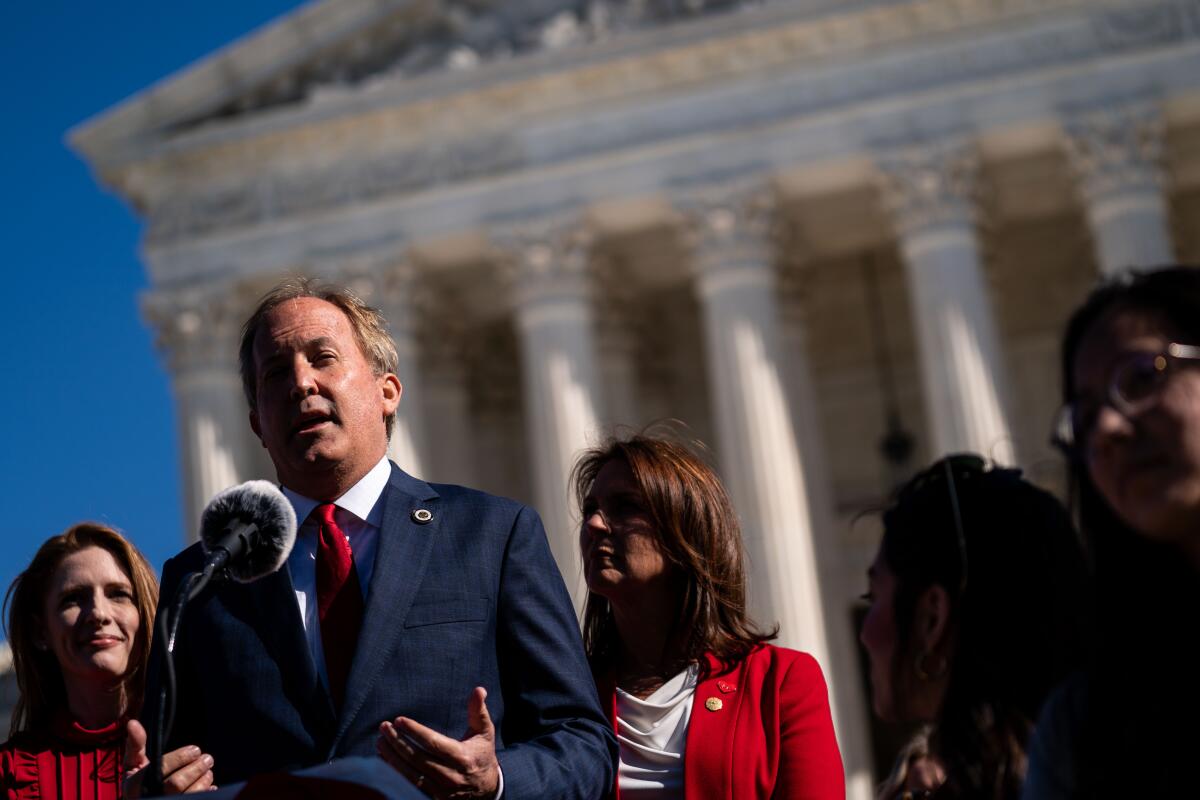States may enforce age limits for porn websites, Supreme Court rules

- Share via
- The justices rejected a free-speech claim from the adult entertainment industry.
- Texas law says a website must use ‘reasonable age verification methods’ if more than one-third of its content is ‘sexual material harmful to minors.’
WASHINGTON — Citing the explosion of online porn, the Supreme Court ruled Friday that states may enforce age verification laws in hopes of screening out children and young teens.
By a 6-3 vote, the justices rejected a free-speech claim from the adult entertainment industry.
“The power to require age verification is within a State’s authority to prevent children from accessing sexually explicit content,” said Justice Clarence Thomas for the court.
The free-speech advocates who challenged the law said it would infringe the rights of adults because they could be forced to disclose their identity.
But the court disagreed.
The Texas law “advances the State’s important interest in shielding children from sexually explicit content. And, it is appropriately tailored because it permits users to verify their ages through the established methods of providing government-issued identification and sharing transactional data,” Thomas said.
The court’s three liberals dissented.
Under the Texas law, a website must use “reasonable age verification methods” to confirm visitors are at least 18 years old if more than one-third of its content is “sexual material harmful to minors.”
More than 21 other Republican-led states have adopted similar laws in recent years.
In defense of the Texas law, Atty. Gen. Ken Paxton said that prior to the internet, the court had upheld laws that required bookstores or magazine stands to “check the age of their customers before selling them pornography.”
He argued that moving their business online should not give pornographers a 1st Amendment right “to provide access to nearly inexhaustible amounts of obscenity to any child with a smartphone.”
State officials also said porn online is increasingly violent and degrading.
“The average child is exposed to internet pornography while still in elementary school,” wrote state attorneys for Ohio and Indiana. “Pornography websites receive more traffic in the U.S. than social media platforms Instagram, TikTok, Netflix, and Pinterest combined.”
More to Read
Get the L.A. Times Politics newsletter
Deeply reported insights into legislation, politics and policy from Sacramento, Washington and beyond. In your inbox twice per week.
You may occasionally receive promotional content from the Los Angeles Times.











